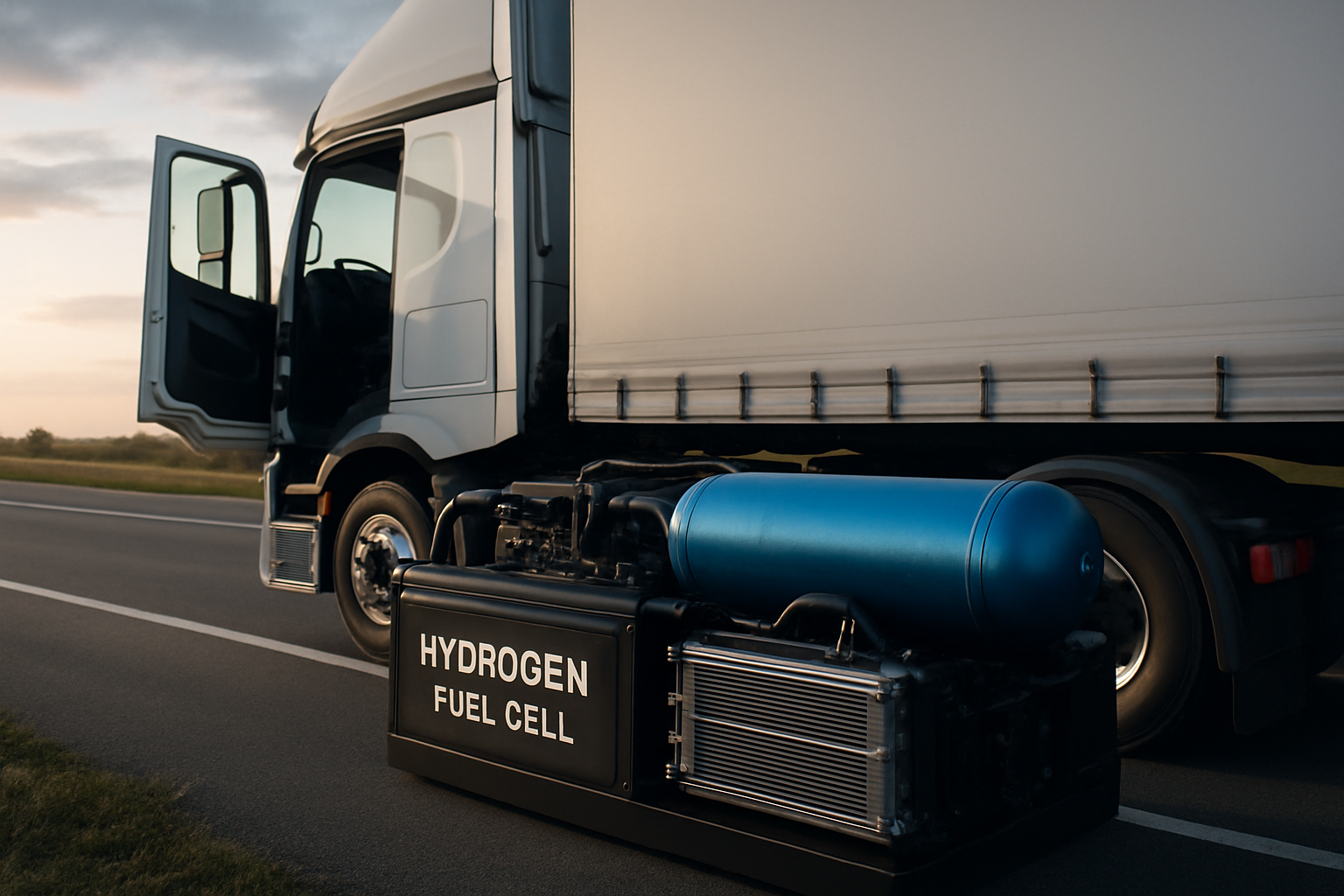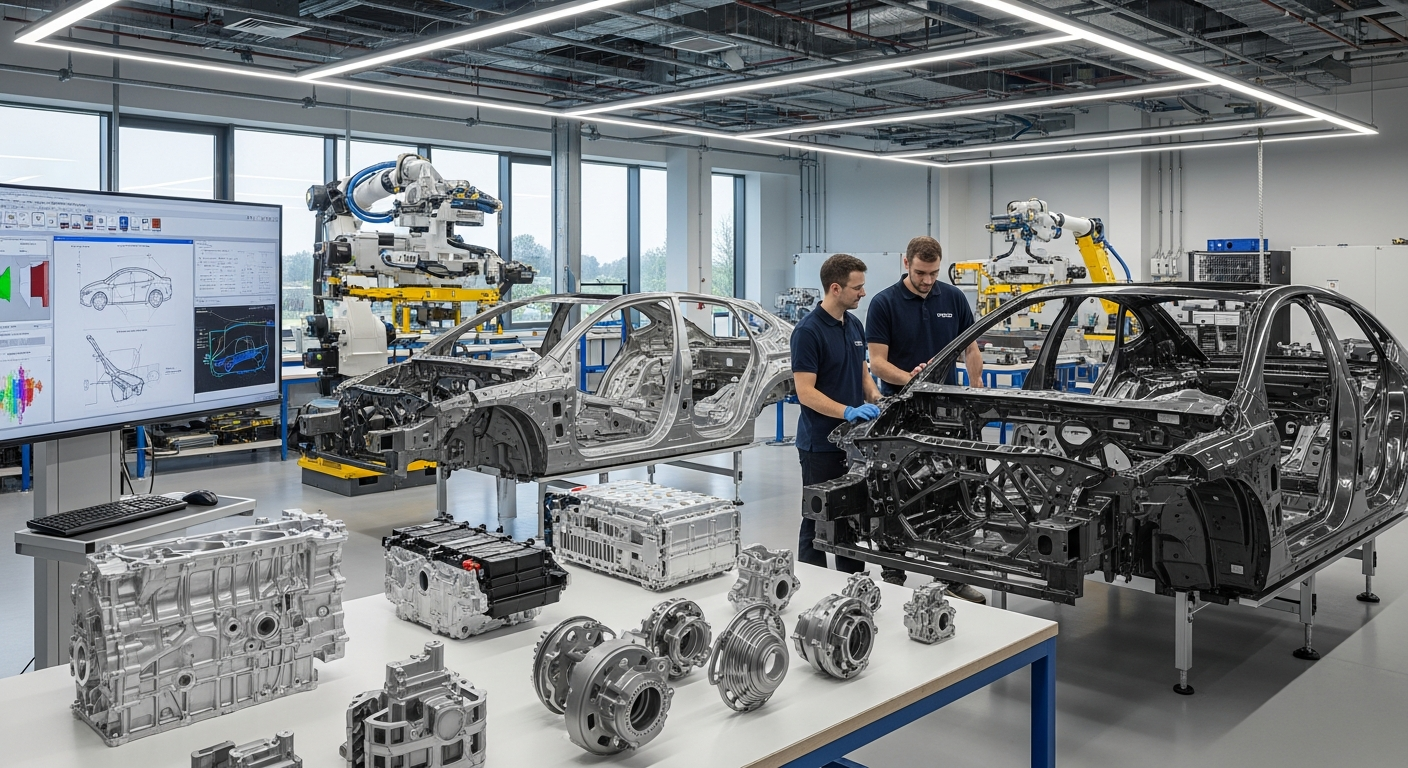Hydrogen-Electric Trucks: The Future of Long-Haul Transportation
In the world of heavy-duty trucking, a quiet revolution is taking place. As the automotive industry seeks cleaner alternatives to diesel engines, hydrogen-electric trucks are emerging as a promising solution for long-haul transportation. This innovative technology combines the power of hydrogen fuel cells with electric drivetrains, offering a zero-emission option that could reshape the future of freight movement. But what exactly are hydrogen-electric trucks, and how do they work? Let's dive into this cutting-edge development that's turning heads in the trucking industry.

Advantages Over Traditional Diesel Engines
One of the most significant advantages of hydrogen-electric trucks is their environmental impact. Unlike diesel engines, which emit harmful pollutants and greenhouse gases, hydrogen fuel cells produce zero tailpipe emissions. This makes them an attractive option for companies looking to reduce their carbon footprint and comply with increasingly stringent environmental regulations. Additionally, hydrogen-electric trucks offer quieter operation, reduced maintenance needs, and potentially lower fuel costs over the vehicle’s lifetime.
Range and Refueling: Addressing Key Concerns
A critical factor in the adoption of any alternative fuel vehicle is its range and refueling capabilities. Hydrogen-electric trucks are making significant strides in this area, with some models boasting ranges of up to 600 miles on a single fill-up. This compares favorably with diesel trucks and addresses one of the primary concerns about electric vehicles for long-haul applications. Refueling times are also competitive, with hydrogen fill-ups typically taking about 15 minutes, similar to diesel refueling times.
Infrastructure Development: The Road Ahead
While the technology behind hydrogen-electric trucks is promising, the development of a robust refueling infrastructure remains a significant challenge. Currently, hydrogen fueling stations are limited, particularly along major trucking routes. However, there’s growing investment in hydrogen infrastructure, with governments and private companies collaborating to expand the network of fueling stations. As this infrastructure develops, it will play a crucial role in the widespread adoption of hydrogen-electric trucks.
Real-World Applications and Early Adopters
Several major trucking companies and manufacturers are already investing in hydrogen-electric technology. Pilot programs are underway in various parts of the world, testing these vehicles in real-world conditions. Early results are encouraging, with reports of good performance, driver satisfaction, and reliability. As these programs expand and more data becomes available, it’s likely we’ll see increased confidence in the technology and growing interest from fleet operators.
The Economics of Hydrogen-Electric Trucking
While the environmental benefits of hydrogen-electric trucks are clear, the economic case is still evolving. Currently, the upfront costs of these vehicles are higher than traditional diesel trucks. However, proponents argue that lower operating costs over the vehicle’s lifetime, including fuel and maintenance, could offset the initial investment. Additionally, as production scales up and technology improves, the cost of hydrogen-electric trucks is expected to decrease, making them more competitive with conventional options.
Challenges and Hurdles to Overcome
Despite the promise of hydrogen-electric trucks, several challenges remain. In addition to the infrastructure concerns mentioned earlier, there are questions about the overall efficiency of hydrogen production and distribution. Critics argue that the energy required to produce and transport hydrogen could offset some of the environmental benefits. Additionally, there are ongoing efforts to improve the durability and longevity of fuel cell systems to match the lifespan expectations of diesel engines.
The Role of Policy and Regulation
Government policies and regulations will play a crucial role in the adoption of hydrogen-electric trucks. Incentives for clean technology, stricter emissions standards, and support for infrastructure development can all accelerate the transition to this new technology. Many countries are already implementing policies to encourage the use of zero-emission vehicles in the transport sector, which could provide a significant boost to hydrogen-electric trucking.
Looking to the Future
As we look to the future of long-haul transportation, hydrogen-electric trucks represent a compelling option for decarbonizing one of the most challenging sectors of the automotive industry. While there are still hurdles to overcome, the potential benefits in terms of emissions reduction, operational efficiency, and long-term sustainability make this technology worth watching. As research continues and real-world experience grows, we may well see hydrogen-electric trucks becoming a common sight on highways around the world, ushering in a new era of clean, efficient freight transport.






